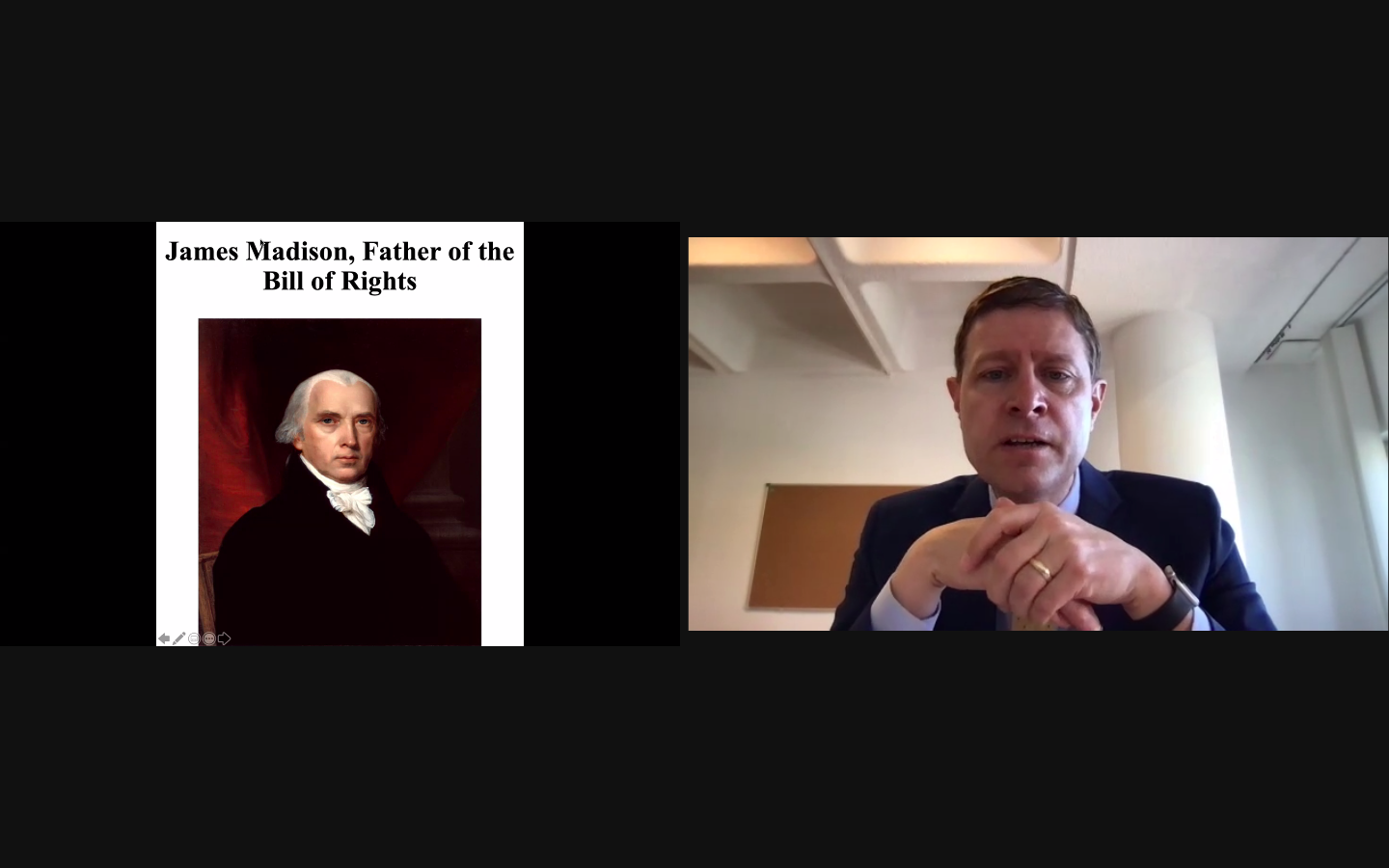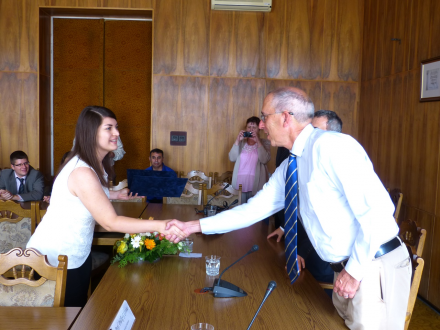On 8 May 20210, Lee J. Strang, professor of constitutional law at the University of Toledo (Ohio), our American partner-institution, gave a guest lecture to the students of the Anglo-Saxon Legal Program upon the invitation of dr. Márton Sulyok from the Institute of Public Law.
In the introduction, dr. Sulyok, who also teaches in the Program, talked briefly about the birth and the content of the First Amendment, underlying the importance of the so-called Free Exercise Clause. In this context, Professor Strang, explained that it might seem odd that the definition of ‘religion’ is nowhere to be found in the Constitution or statute laws, and it never has been created by the Supreme Court through interpretation either. At the same time, judicial interpretation gradually extends its interpretation to include non-theistic belief systems as well (e.g. strong, ethically bound beliefs in certain political ideologies, or environmentalism), causing problems in every-day practice. In this regard, Professor Strang used examples to present what US Supreme Court jurisprudence understands under the “substantial burden” element on the free exercise of religion, how they interpret it. In addition, based on numerous specific cases, different aspects of freedom of religion have been examined in terms of military service, education, employment and anti-discrimination, where relevant. As for the theory of the “Jeffersonian Wall”, the different constitutional approaches to the separation of church and state have been touched upon, as well as the effects of the coronavirus pandemic of every-day practices of religion. In this realm, the talk also focused on state interference in terms of policing unauthorized gatherings for the purpose of the free exercise of religion.






